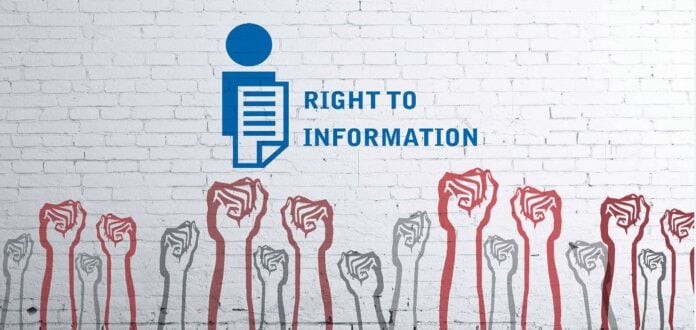By Vickram Kilpady
Born out of a grassroots struggle that began in 1996, the Right to Information (RTI) Act of 2005 recently completed 20 years—a landmark that should have been a celebration of transparency and accountability. Instead, it stands as a story of dilution and decay.
When enacted, the RTI Act promised citizens access to government records to fight corruption, expose inefficiency, and demand accountability from an otherwise opaque bureaucracy. Over two decades, it has been instrumental in exposing scams like the Adarsh Housing Society scandal, uncovering gaps in the MGNREGA scheme, tracking internet shutdowns, and even contributing to the Supreme Court’s verdict declaring electoral bonds unconstitutional.
Yet, the same period has witnessed a steady weakening of this once-roaring watchdog. The 2019 amendment to the Act gave the Union government the power to set salaries and service terms for information commissioners—effectively curbing their autonomy. The Digital Personal Data Protection Act (DPDPA) 2023 dealt a further blow, amending Section 8(1)(j) to impose a blanket ban on releasing personal information from public records.
Former Chief Information Commissioner Shailesh Gandhi warned that this change “makes it easy to deny most information by calling it personal,” while Congress Spokesperson Pawan Khera described it as a quiet disembowelling of transparency—turning the lion into a house cat.
According to Satark Nagrik Sanghathan, nearly 60 lakh RTI applications are filed annually, with only half yielding information. A June 2025 report found over four lakh pending applications, and several information commissions—Jharkhand, Tripura and Telangana—completely defunct. Other states, including Maharashtra, Karnataka and Haryana, are struggling with major vacancies.
Equally troubling is the growing risk faced by RTI activists. At least 108 have been killed, often with no justice, as the Whistleblowers Protection Act (2014) remains unimplemented. Some activists have even been painted as “blackmailers,” a convenient label that discourages genuine public inquiry.
The government’s reluctance to fill vacancies, coupled with its tightening control over commissions, has created an atmosphere of fear and futility. The first attempt to curtail the Act in 2006—excluding file notings—was beaten back by civil society. But the latest incursions have been quieter, more insidious. Khera noted that this is the new playbook—not toppling institutions outright, but hollowing them from within.
Even so, RTI users and activists insist the only way to revive the law’s strength is through persistent use. Every application filed, they say, reaffirms citizens’ ownership of democracy.
Two decades after its birth, the RTI Act remains a flickering beacon—dimmed, but not extinguished—waiting for its next dawn in the battle for transparency.


